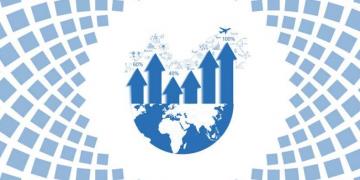
Beirut, 29 March 2018 (Communication and Information Unit)--- Water experts from the Arab region wrapped up a two-day meeting on Thursday at the UN Economic and Social Commission for Western Asia (ESCWA) that explored regional views on water-related issues and agreed on priorities for the Arab region.
“It is crucial to cooperate and organize our work through sectors, each of which has an important role in directing priorities and conveying key messages related to water,” said Roula Majdalani, the Director of the Sustainable Development Policies Division (SDPD) of ESCWA.
Ms. Majdalani was speaking from the UN regional commission’s headquarters in Beirut, Lebanon, where the “Regional Preparatory Meeting on Water Issues” took place on 28 and 29 March, in collaboration with the League of Arab States (LAS).
This consultation process provided a platform to exchange experiences, examine indicators, and foster dialogue among water stakeholders in the Arab States on the water dimensions of the 2030 Agenda for Sustainable Development, including Sustainable Development Goal (SDG) 6 which aims to “ensure availability and sustainable management of water and sanitation for all.”
“To what extent can we reinforce the pivotal role of water and its interactions with other sectors?” Ms. Majdalani asked in the presence of members of the High-Level Political Forum (HLPF) Working Group established under the auspices of the Arab Ministerial Water Council to support regional preparations on water-related issues for the HLPF.
This Working Group is comprised of ESCWA, the League of Arab States, the Arab Center for the Studies of Arid Zones and Dry Lands (ACSAD), the Arab Countries Water Utilities Association (ACWUA), the Arab Network for Environment and Development (RAED), the Arab Organization for Agriculture and Development (AOAD), the Arab Water Council (AWC), the Centre for Environment and Development for the Arab Region and Europe (CEDARE), the United Nations Food and Agriculture Organization (FAO) and UN Environment.
“Water is central to life, and that’s why it is addressed in the 2030 Agenda,” said Nada El Agizy, the Director of Sustainable Development and International Cooperation at the League of Arab States, in her address.
“Integrated Water Resources Management in the Arab Region is one of the most important mechanisms for achieving sustainable development, which reflects a well-established culture that calls for intersectoral integration for harmonization, planning, and implementation, and the realization of economic and environmental returns for all sectors,” she added.
Ms. El Agizy underscored the significance of the cooperation between the League of Arab States and ESCWA in following up on the implementation of the SDGs, highlighting their common goals to help build a prosperous Arab region that supports the aspirations of its people.
Highlighting the role of the Food and Agriculture Organization (FAO) as custodian of the 21 indicators of SDG 6, Pasquale Steduto, the Regional Strategic Programme Coordinator at the FAO’s Regional Office for the Near East and North Africa (NENA), said that the supply chain of food and fibers determines 92 percent of water consumption and that the Arab Region has the largest water scarcity of all other regions in the world.
“The region needs to have an outlook on its development that considers water consumption as the binding constraint to water and sustainability,” he stressed.
Meanwhile, Hamed Bakir, the Coordinator of Environmental Health Interventions
at the World Health Organization (WHO), raised the alarm about the state of drinking water, recalling that 74 million people (19 percent) in the Arab region lack basic sanitation services while 51 million do not have access to drinking water.
The meeting addressed the Synthesis Report (SDG6) on water and sanitation presented by Stefan Uhlenbrook, the Director of the World Water Assessment Program (WWAP), who said the world is lagging behind in achieving SDG6. He also called on countries to implement the Integrated Water Resources Management (IWRM) while noting that the need for funding has tripled.
Carol Chouchani, the Chief of the Water Resources Section at ESCWA, and Emad Adly, the General Coordinator of the Arab Network for Environment and Development (RAED) presented lessons learned from the Millennium Development Goals (MDGs), focusing on regional indicators.
Thursday’s meeting resulted in a joint regional outcome statement on water-related issues that will be presented at the Arab Sustainable Development Forum (AFSD) at ESCWA in April. The statement will also be discussed at the 10th session of the Arab Ministerial Water Council (Kuwait, 2 May 2018) and inform preparations for the High-Level Political Forum (New York, 9-18 July 2018).
Eight Arab States will be presenting their Voluntary National Review (VNR) of progress in implementing the 2030 Agenda during the 2018 session, namely: Bahrain, Egypt, Lebanon, Qatar, Saudi Arabia, State of Palestine, Sudan and the United Arab Emirates. VNRs were previously presented by Egypt and Morocco in 2016, and Qatar and Jordan in 2017.
For more information:
Nabil Abu-Dargham, Head, ESCWA Communication and Information Unit
+961-70-993-144; email: dargham@un.org
Ms Rania Harb +961-70-008-879; email: harb1@un.org
Ms Myrna Mahfouz: +961-70-872-372; email: mahfouz@un.org
Mr Haidar Fahs: +961-70-079-021; email: haydar.fahs@un.org





